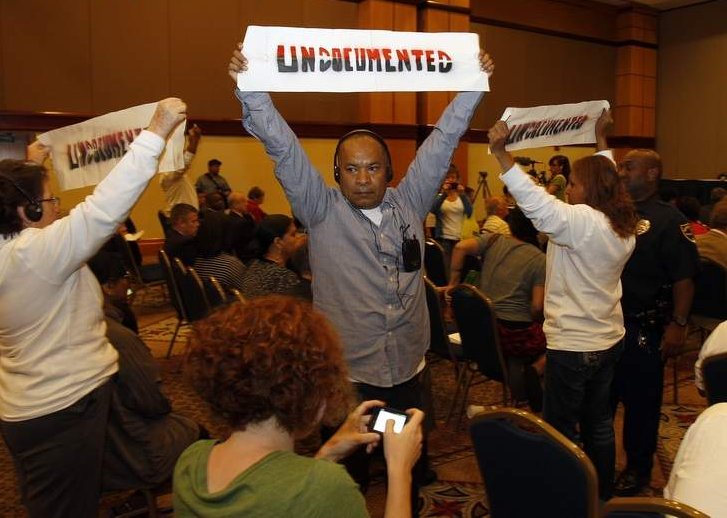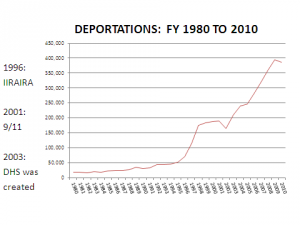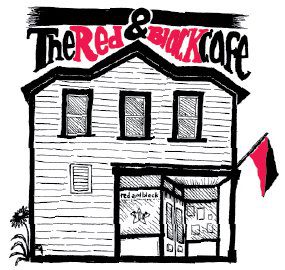Anarchist Communications.
Here’s some things that have come across my desk this week that I’ve been meaning to post a note about.
Publications.
Shawn P. Wilbur, La Frondeuse Issues #3 and #4. From Shawn Wilbur:
The Black and Red Feminism zine has been reborn as La Frondeuse [The Troublemaker, or The Anti-Authoritarian.] The name is borrowed from one of Séverine’s collections. Issue 3 features works by Louise Michel, Paule Mink and Séverine. Issue 4 contains works by Jenny d’Héricourt under various pen-names. The name-change comes with a bit of fancy repackaging, and will be retroactive. . . . With just a little luck, the paper edition of La Frondeuse will become the first monthly subscription title from Corvus Editions, starting this fall….
Roderick Long, Three from The Liberator. From Roderick Long:
William Lloyd Garrison's Liberator was the premier abolitionist journal of the antebellum u.s. I've just posted three pieces from The Liberator: an anti-voting piece by Garrison, an anti-slavery piece by Lysander Spooner, and a report on an 1858 reform convention.
Fair Use Repository, Now available: The Relation of Anarchism to Organization (1899), by Fred Schulder OK, this one’s by me, so the path of
communication
was a relatively short one. Still, check it out: a rare individualist anarchist pamphlet from Cleveland, Ohio, printed in 1899. By Fred Schulder, an individualist anarchist noticeably influenced by Tucker, Clarence Swartz, and Henry George.[1] From the Fair Use Blog:Schulder's essay is, in any case, an interesting attempt at discussing the possibilities of consensual social organization, and the anti-social, anti-coordinative features of State force, from a framework based on Spencerian evolutionary theory.
[More here.]CAL Press, Modern Slavery #1: From CAL Press:
. . . The first full issue of this journal has now taken half a decade to come to fruition. It's been a struggle on many fronts to turn the original impulse and idea into reality. But from here on there's no turning back and we refuse to be stopped! The Modern Slavery project is a direct successor to previous C.A.L. Press projects. These include the magazine Anarchy: A Journal of Desire Armed (published since 1980, and now produced by an independent collective since 2006), the North American Anarchist Review (published for a few years in the '80s), the Alternative Press Review . . ., and the C.A.L. Press book publishing project . . . . The original idea for this new journal was to provide a space within the libertarian and anarchist milieu for the publication of some of the really important, critical and creative material that has too often fallen into the cracks between what will fit into the inadequate spaces available in libertarian periodicals and what has been publishable in book form. . . . The original concept for Modern Slavery included a roughly 200-page, perfect-bound oversize journal format oriented towards people who enjoy reading and who aren't afraid to dive into longer texts that are exciting, intelligent and well-written. In order to remove any possibility or appearance of competition with the now separate and independent Anarchy magazine project, the intention was to avoid newsstand distribution, keep the graphic design simple, severely limit artwork and photos, and avoid publishing any material on the shorter side. The planned format was actually intended to be something not yet too far from what you'll find in this first full issue. However, since the Anarchy collective has recently decided to end its newsstand distribution and shrink its circulation, Modern Slavery will instead seek (limited) newsstand distribution, include more complex graphic design and more artwork and photos, while attempting something more of a balance between longer and shorter contributions in future issues. The changes in direction will probably become more clear as future issues appear.
Issue #1 includes articles by Paul Simons, François Gardyn, Henry David Thoreau, Ron Sakolsky, Voltairine de Cleyre, Massimo Passamani, Jason McQuinn, Émile Armand, and the first parts of serialized works by Karen Goaman, Wolfi Landstreicher, and Lang Gore.[2] [More here.]
CFPs.
- InterOccupy: Science & Society Accepting Papers on Anarchism: Theory, Practice, Roots, Current Trends. From andrea @ InterOccupy:
Science & Society is planning a special issue on the broad theme of anarchism, as appearing in both past and present-day political movements. . . . While we expect contributors to innovate and shape their papers according to specific interests and views, we encourage them to contact the Guest Editors (email parameters provided below), so that completeness of coverage can be achieved, and duplication avoided, to the greatest extent possible. We are looking for articles in the 7,000-8,000 word range. Projected publication is Spring 2014, so we would like to have manuscripts in hand by January 2013. Discussion about the project overall, and suggestions concerning content, should begin immediately.
Note that, this being Science & Society, the top two suggested topics for contributions are, essentially,What is it that an understanding of Anarchism can contribute to the confirmation or theoretical development of Marxism?
But there are a bunch of other topics that they’re throwing out for consideration in the CFP, and it may well turn out to be an interesting issue. (This being a CFP, whether it’sinteresting
for good, or for ill, is partly up to you….)
Events.
DFW Alliance of the Libertarian Left, Black Cat Collective’s HQ Taking Shape. From Justin at DFW ALL:
The newly acquired headquarters for the Fort Worth-based mutual aid group the Black Cat Collective is under development. Will Schnack has been helping to organize construction of the group's headquarters and infoshop in recent weeks. He has also posted photos (pictured above and below) on the group's Facebook page of the recent progress. This past week, Food Not Bombs co-founder Keith McHenry was scheduled to give a workshop at the remodeled premises on the topic of consensus-based decision making.
[More here.]Los Angeles Anarchist Bookfair, September 8, 2012. To be held at the Los Angeles Municipal Art Gallery at Barnsdall Park, 4800 Hollywood Blvd., Los Angeles, Cali. I’m glad to hear that they are back at Barnsdall Park; this is an absolutely gorgeous location to spend an afternoon. Booksellers and Organizations attending this year have been announced here.


